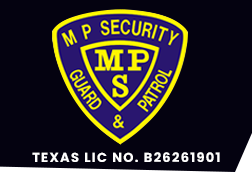In your security guard job, it’s pretty common to be thrown into challenging situations where de-escalation is required. Sometimes even a few subtle changes in your body, tone, or words can make a huge difference in terms of shifting a potentially violent situation into an exchange that is far less volatile. Whether you’re a security guard or just someone looking for ways to manage challenging interactions, here are a few key things to remember when it comes to de-escalating potentially violent situations.
Body Language and Non-Verbal Communication
Whether it’s conscious or unconscious, non-verbal body language and cues can have a huge impact on setting the tone for the interaction. Be sure to maintain a calm demeanor when speaking with someone else during a charged interaction. Also, take note of your body positioning. Often standing fully forwards with your chest out can be an intimidating posture and make others feel threatened, so a de-escalating posture means turning your body slightly to the side and also raising your hands in a calming gesture.
Understanding and Empathy
Perhaps the most important tool in your de-escalation belt is to reframe your thinking to a place of understanding and empathy. Behavior does not exist in a vacuum, and it can be a huge step to reframe your thinking and seek to understand why a person is behaving the way they are. Whether it’s due to a negative experience they’ve had, or something else that’s going on internally, your best shot is to listen and try to understand what they’re going through. The more you know more about their mindset, the greater the chances are that you can diffuse whatever conflict has arisen.
Verbal Diffusion
Once you know a bit more about the situation and where the tension is coming from, the next step is to offer some verbal comfort to diffusing the situation. Even saying words as simple as “I’m sorry that happened to you” or “That sounds really frustrating, I’m sorry you have to deal with that” can go a long way in validating the other person’s experience and helping them feel heard. Offering an apology and some affirming words can often greatly assist in de-escalating conflicts.
Offer Options and Consequences
The final step towards de-escalation is through offering a path forward. It’s important here to make sure you’re giving the other person options and connecting each option with a result or consequence. So, for example- “You’re welcome to continue working this out with me, but we need to exit the store while we talk. Or if you’d prefer, you can call the manager at this phone number, but we need to work this out away from the staff or I’ll have to call for more security.”
MP Security Has Your Security Needs Covered
Knowing exactly how to respond to potentially violent situations and work towards de-escalating can be complicated and requires practice. If you’re looking for professional security guards who are trained in conflict de-escalation, our staff at MP Security are more than up for the job! Get in touch with us today to find out more about our professional security guard services, and we’ll also hook you up with a free quote!




